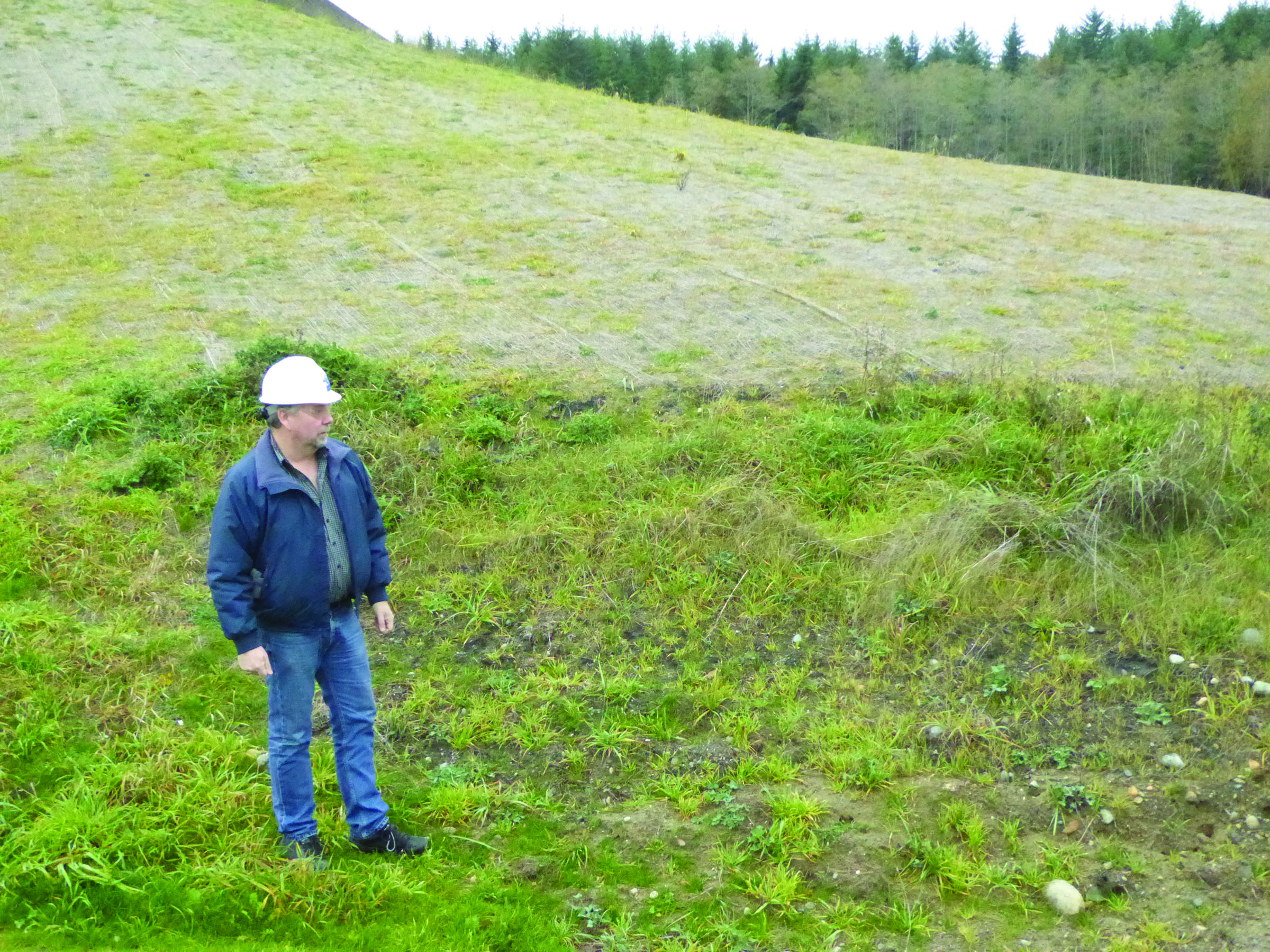PORT TOWNSEND — The Port Townsend Paper Corp., can continue to operate a limited purpose landfill but must take responsibility for its eventual closure, according to an agreement reached with Jefferson County earlier this month.
Under the agreement, the mill will receive a permit for the operation of the landfill but must deposit the funds needed for its cleanup, about $800,000 into a trust account in the next three years.
“This works for us,” said Kevin Scott, the mill’s director of sustainability. “It’s a pretty good win all around.”
Added Jared Keefer, Jefferson County’s water quality director: “It’s very nice to have this chapter closed.”
The agreement marks the end of a dispute between the county health department and the mill, which sought to renew a landfill permit under an inert status in 2012.
The company, which had operated under a permit for inert waste since 2004, applied for renewal in September 2012, and the Jefferson County Public Health Department denied the request, saying the landfill should be permitted under the more stringently regulated limited purpose classification.
Mill officials appealed the decision. Mediation among representatives of the paper company, the county and Ecology led to the present permit, effective July 3, which will expire in five years.
“Once we started talking, everything proceeded naturally,” Scott said.
Scott said meetings that included himself, Keefer and representatives of the state Department of Ecology led to the agreement in early November.
The closure plan included a financial assurance requirement, was the agreement’s final step.
Since the mill began operating the landfill, state regulations were put into effect requiring landfill operators to pay an amount projected to cover the cleanup, which is adjusted for inflation every year.
The regulation was created to ensure proper closure and cleanup, Keefer said.
“Companies can still walk away but need to provide financial assurance so there is enough money left to close the landfill,” he said.
The money is deposited in an account controlled by the county health department which will hire a third party for cleanup if necessary.
If mill officials decide to participate in the cleanup, they can gain access to the funds with the approval of the health department.
The 200-acre landfill, which is located up a dirt road from the back of the mill, has another 50 years of operational life, according to Scott.
The landfill includes lime grit — also known as slaker grit — boiler ash, inert wastes and incidental metal residual material from the combustion of boiler fuel at the mill.
Once the capacity of a certain section is reached, it is seeded with grass and then resembles a large hill.
“It’s not very exciting,” Scott said of the location.
“People hearing this is a landfill expect something that looks like the county dump.”
This land will never be developed, Scott said, due to a conservation easement agreement with Jefferson Land Trust.
Even so, the land is “too far away from anything to be useful,” Scott said.
When the permit process began, the mill intended to construct a biomass facility, a plan it has since abandoned.
________
Jefferson County Editor Charlie Bermant can be reached at 360-385-2335 or cbermant@peninsuladailynews.com.

